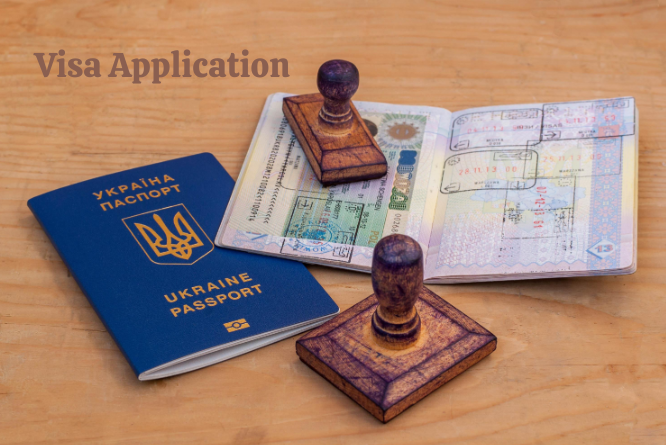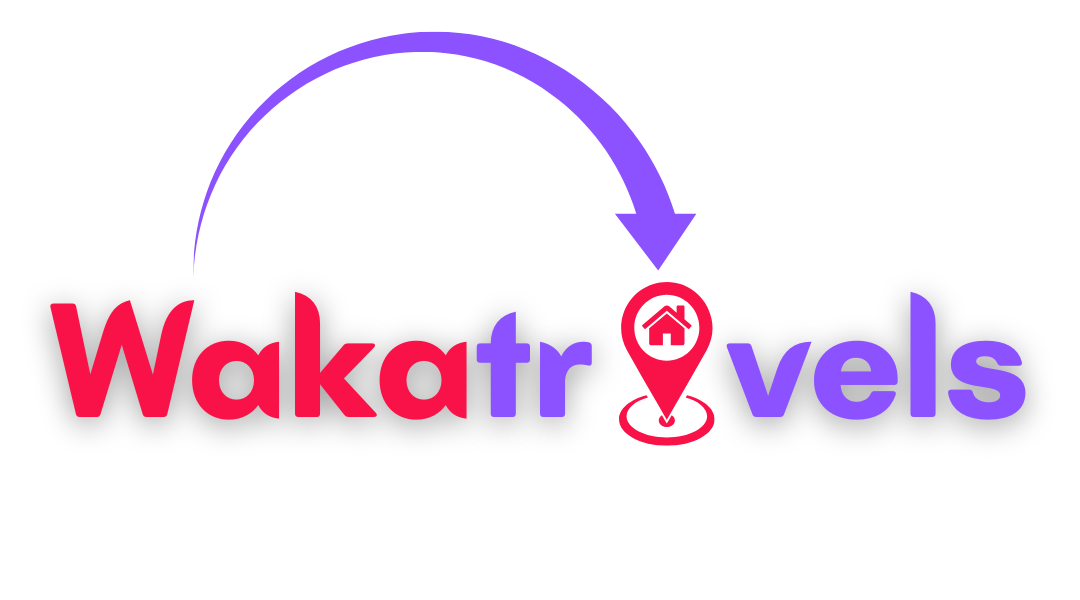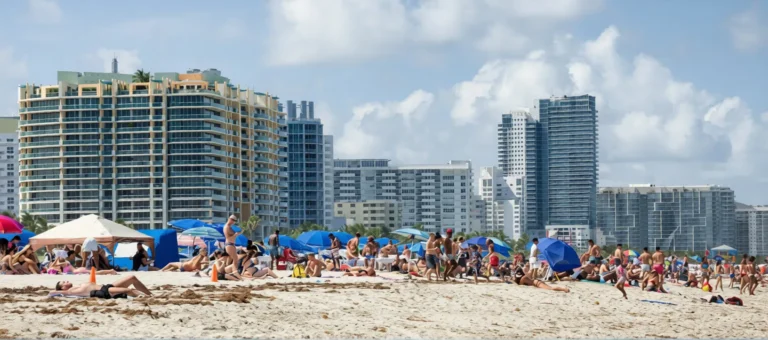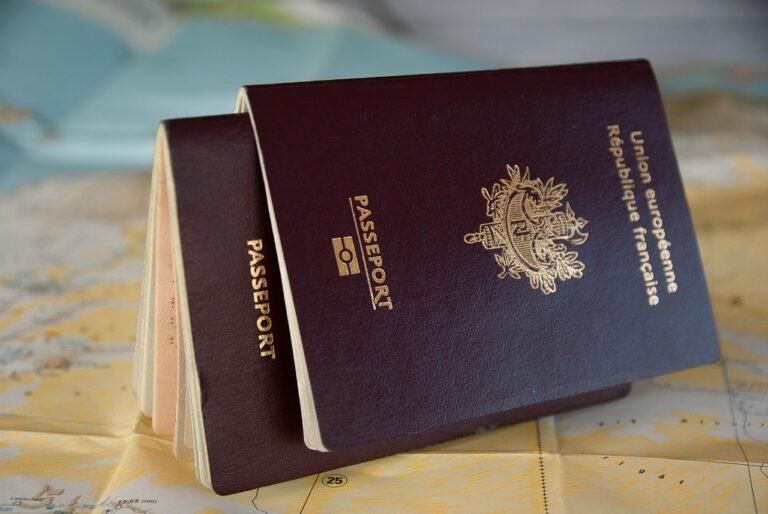I’ll never forget the look on my friend’s face when the UK border officer handed back her passport with a shake of his head. After months of planning her London adventure, she was being turned away at Heathrow because of one missing document. That painful nine-hour flight home still haunts her—and me, since I was the supposedly “experienced traveler” who’d convinced her she didn’t need that extra financial statement.
Don’t be like us. Whether you’re planning to study, work, visit family, or just soak up the British charm, navigating UK visa requirements is about as straightforward as understanding cricket rules after three pints. The system changes frequently, the requirements vary wildly depending on your situation, and one wrong move can send you back to square one.
But don’t panic! I’ve been through this paperwork labyrinth more times than I care to admit (including that embarrassing rejection in 2023—more on that fiasco later), and I’ve pulled together everything you need to know about UK visa application documents for 2025. Let’s break it down.
What UK Visa Do You Actually Need?
Before drowning in paperwork, let’s identify which visa you’re actually applying for. The UK immigration system underwent significant changes after Brexit, and again in 2024, so even if you’ve visited before, the rules might have changed.
Here’s a quick rundown of the main visa categories:
- Standard Visitor visa – For tourists, family visits, and short business trips (up to 6 months)
- Student visa – For academic courses lasting more than 6 months
- Skilled Worker visa – For those with job offers from UK employers
- Family visa – For joining family members who are UK citizens or settled
- Health and Care Worker visa – For qualified healthcare professionals
- Global Talent visa – For leaders or potential leaders in academia, research, arts, or digital technology
Got it? Great. Let’s dig into the document requirements for each.
Standard Visitor Visa Documents: The Basics
The Standard Visitor visa is the most common type, covering tourism, visiting family, and attending short courses or business meetings. For this one, you’ll need:
- Current passport – Valid for at least 6 months after your planned departure from the UK
- Completed online application – Printed confirmation page with your application reference number
- Recent passport-sized photograph – Taken within the last month, against a light background
- Proof of accommodation – Hotel bookings, Airbnb reservations, or invitation letter from hosts
- Detailed travel itinerary – Including flight bookings, planned activities, and places to visit
- Financial documents – Bank statements from the last 6 months showing you can support yourself
- Employment verification – Letter from your employer confirming your position, salary, and approved leave
- Proof of ties to your home country – Evidence you’ll return home after your visit (property ownership, family ties, etc.)

Remember when I said my friend got rejected? She’d neglected to bring recent bank statements, assuming her hefty savings account would be enough. The thing is, UK immigration officers don’t just want to see that you have money—they want to see stable financial history showing regular income and responsible spending habits. One large deposit right before applying looks suspiciously like someone loaned you money just to get the visa.
Student Visa: Extra Documentation Required
If you’re planning to hit the books in the UK, you’ll need everything from the visitor visa list, plus:
- Confirmation of Acceptance for Studies (CAS) – From your university or college
- Proof of English language proficiency – Usually IELTS or equivalent test results
- Tuberculosis test results – For applicants from certain countries
- Academic qualifications – Certificates and transcripts referenced in your CAS
- Proof of funds for tuition and living costs – Usually showing amounts available for up to 9 months
For students, the financial requirements are particularly strict. You must show you have your first year’s tuition fees plus £1,334 per month for living costs in London (or £1,023 per month outside London) for up to 9 months.
The money must be in your account (or your parents’ account) for at least 28 consecutive days before applying. And the bank statement must be dated within 31 days of your application. Miss either timeline by a day, and it’s back to the drawing board.
Skilled Worker Visa: Employment Documentation
For the Skilled Worker visa (previously called Tier 2), the documentation gets even more complex:
- Certificate of Sponsorship (CoS) – From your UK employer
- Proof you meet English language requirements – Either through nationality, degree taught in English, or passing an approved test
- Job details – Title, duties, salary (must meet minimum thresholds)
- Bank statements – Showing you can support yourself
- Criminal record certificate – If working with vulnerable people
- Qualifications relevant to your role – Degrees, professional certifications
- Tuberculosis test results – For certain nationalities
Family Visa: Relationship Evidence Is Key
Applying to join a spouse, partner, or family member? You’ll need to prove your relationship is genuine with:
- Proof of relationship – Marriage certificate, civil partnership document, or evidence of living together for at least 2 years
- Evidence of ongoing communication – Messages, call logs, photos together spanning your relationship
- Sponsor’s immigration status – British passport or residence permit
- Financial requirement evidence – Showing your sponsor earns at least £29,000 per year or has substantial savings
- Adequate accommodation documents – Property deeds, rental agreement, or council tax statements showing enough space for everyone
- English language test results – Unless exempt
The financial requirement for family visas caught me out in 2023. My husband (the UK sponsor) had changed jobs three months before our application, and we couldn’t show the required six months of payslips at the new salary level. We had to wait another three months to apply—delay that cost us a fortune in separate rent payments across two countries.
Health and Care Worker Visa: Specialized Requirements
Healthcare professionals have a dedicated visa route with these document requirements:
- Certificate of Sponsorship – From your NHS or healthcare employer
- Professional qualifications – Registration with relevant UK body (GMC, NMC, etc.)
- English language proficiency – Usually higher requirements than other visas
- Tuberculosis test results – For certain nationalities
- Criminal record certificate – From countries you’ve lived in for 12+ months in the last 10 years
Global Talent Visa: Proving Your Exceptional Abilities
For the crème de la crème in their fields, the Global Talent visa requires:
- Endorsement from recognized UK body – In science, humanities, engineering, arts, or digital technology
- Evidence of achievements – Publications, awards, grants, or contracts
- Letters of recommendation – From recognized experts in your field
- Personal statement – Explaining your contribution to your field
- Research proposal – If applicable
Common Documentation Mistakes to Avoid
After helping dozens of friends through this process (and making plenty of mistakes myself), here are the pitfalls to watch for:
- Translation issues – All documents must be in English or Welsh, or accompanied by certified translations
- Expired documents – Check validity dates carefully; most need to be less than 31 days old
- Missing signatures – Every form needs to be signed in the right places
- Inconsistent information – Dates, names, and details must match across all documents
- Poor-quality copies – All scans must be high-resolution and clearly legible
- Insufficient funds duration – Money must be in accounts for specific timeframes
- Using templates – UK officials can spot generic recommendation letters or employment verification
- Forgetting biometrics – Most visas require fingerprints and photos at application centers
The Biometric Residence Permit (BRP)
Most visas now come with a Biometric Residence Permit—a credit-card sized document you’ll need to collect upon arrival in the UK. Your decision letter will tell you where and when to collect it (usually within 10 days of arrival).
Don’t forget this step! I’ve seen people turned away from job interviews because they hadn’t collected their BRP, which serves as proof of right to work or study.
Document Preparation Tips from Someone Who’s Been There
When I was gathering documents for my third UK visa application (yes, third—don’t ask about the second), I developed a system that saved my sanity:
- Create a dedicated visa folder – Physical and digital
- Make a detailed checklist – And check items off as you collect them
- Get multiple copies – Original plus two photocopies of everything
- Organize by category – Identity, financial, employment, etc.
- Use dividers with labels – Makes finding specific documents easier
- Include a cover letter – Explaining your application and listing enclosed documents
- Number your pages – Reference them in your cover letter for the reviewing officer’s convenience
Here’s how I organize my application materials:
| Category | Original Documents | Copies | Digital Backup |
| Identity | Passport, Birth Certificate | 2 copies | Scanned PDFs |
| Financial | Bank Statements, Payslips | 2 copies | Scanned PDFs |
| Employment | Contract, Reference Letter | 2 copies | Scanned PDFs |
| Accommodation | Lease, Utility Bills | 2 copies | Scanned PDFs |
| Travel | Flight Itinerary, Insurance | 2 copies | Scanned PDFs |
| Other | Photographs, Application Forms | 2 copies | Scanned PDFs |
Using Visa Services: Worth It or Waste of Money?
After my second visa rejection, I seriously considered hiring professional help. The market is flooded with visa services promising to make the process painless—for a price. But are they worth it?
In my experience, it depends on your situation. If your case is straightforward (tourism, short business trip), you probably don’t need professional help. But if you’re applying for a complex visa (work, family, exceptional talent), or if you’ve been rejected before, professional guidance might be worth every penny.
Just be wary of services that guarantee approval (no one can promise this) or charge suspiciously low fees (they might cut corners).
Timeline: When to Apply and Expected Processing Times
Don’t leave this to the last minute! UK visa processing times vary widely depending on the type and time of year. As of 2025, here’s what to expect:
- Standard Visitor visa: 3-4 weeks
- Student visa: 3-4 weeks
- Skilled Worker visa: 3-8 weeks
- Family visa: 8-12 weeks
- Health and Care Worker visa: 3-4 weeks
- Global Talent visa: 3-8 weeks after endorsement
You can apply up to 3 months before your intended travel date, and I strongly recommend doing so. My last application was during the summer rush, and what should have been a 3-week process stretched to nearly 8 weeks, causing me to miss a friend’s wedding—still kicking myself about that one.
The Home Office’s 2025 Changes to Be Aware Of
Since my first UK visa application in 2018, the system has changed almost annually. For 2025, here are the latest updates:
- Digital documentation – More document types can now be uploaded digitally
- Increased fees – Almost all visa categories saw fee increases in January 2025
- Stricter financial requirements – Higher minimum income thresholds for family visas
- New visitor visa rules – Changes to permitted activities for business visitors
- Healthcare surcharge increase – Now £624 per year for most visa types
- Electronic Travel Authorization – New requirement for visa-exempt nationalities
- Biometric verification enhancements – More sophisticated identity checks
The Emotional Rollercoaster: Preparing Mentally
Let’s be honest—this process is stressful. I’ve had full-blown panic attacks over missing documents and spent sleepless nights waiting for decisions. My best advice:
- Start early – Giving yourself extra time reduces stress
- Build in buffer time – Delays happen, often when least expected
- Have a Plan B – Know what you’ll do if your visa is delayed or refused
- Find a visa buddy – Someone who’s been through it before, or applying alongside you
- Take breaks – Step away when it gets overwhelming
- Celebrate small wins – Successfully gathering a difficult document deserves recognition!
Conclusion: Yes, It’s Worth It
After four successful UK visa applications (and those two rejections we don’t talk about), I can honestly say that despite the stress, expense, and occasional tears, the UK experience has been worth every document-gathering moment.
Whether you’re heading to the UK for the vibrant cities, picturesque countryside, world-class education, or career opportunities, proper preparation of your visa documents is your ticket to a smooth entry.
Remember my friend who got turned away at Heathrow? She reapplied with proper documentation and ended up staying in London for six months—eventually meeting her now-husband at a pub in Shoreditch. Sometimes even visa failures have happy endings!
Good luck with your application, and maybe we’ll cross paths in a London park or Scottish castle sometime soon.
Frequently Asked Questions
How much money do I need to show for a UK visitor visa?
While there’s no specific amount, you generally need to show enough funds to cover your entire stay without working. A good rule of thumb is £100-£150 per day of your visit, plus accommodation costs.
Can I apply for a UK visa without using an agency?
Absolutely! Most applications are submitted directly by applicants through the UK government’s official website. Agencies may help with document preparation but aren’t required.
How far in advance should I apply for a UK visa?
You can apply up to 3 months before your intended travel date. Given potential delays, I recommend applying at least 6-8 weeks before your planned trip.
What happens if my UK visa is rejected?
You’ll receive a letter explaining the reasons for rejection. You can either address these issues and reapply (paying the fee again) or, in some cases, request an administrative review if you believe an error was made.
Do I need to translate my documents for a UK visa application?
Yes, all documents must be in English or Welsh. If your original documents are in another language, you’ll need certified translations.
Can I use the same documents if I’m reapplying after a rejection?
You can use some of the same documents, but you must address the specific reasons for rejection with new or additional evidence.
How strict is the UK about visa documentation requirements?
Very strict. Missing or incorrect documents are the most common reasons for visa refusals. Every requirement must be met exactly as specified.
Can I expedite my UK visa application?
Yes, the UK offers priority and super-priority services for most visa types, but these come with substantial additional fees (£500-£800) and aren’t available in all countries.
Do I need to submit original documents or copies?
Most documents can be scanned and uploaded online, but you may need to present originals at your biometric appointment or upon request.
How long can I stay in the UK with a Standard Visitor visa?
Usually up to 6 months per visit, though the exact duration is determined by the border officer upon entry.
Can I work on a UK visitor visa?
No, working is strictly prohibited on a visitor visa. You may attend meetings, conferences, and certain business activities, but cannot take employment.
What’s the difference between a visa and an ETA?
A visa allows you to enter and stay in the UK for a specific purpose and duration. An Electronic Travel Authorization (ETA) is a lighter pre-travel check required for visa-exempt nationalities for short visits.
Can family visit visa applications be expedited for emergencies?
Yes, in cases of family emergency, you can request expedited processing, though you’ll need to provide evidence of the emergency situation.
Is travel insurance required for a UK visa application?
It’s not strictly required for the application, but it’s highly recommended and may strengthen your case by showing you’ve planned responsibly.
Can I apply for a UK visa if I have a criminal record?
Yes, but you must declare all criminal convictions. Minor offenses might not affect your application, but serious crimes may lead to refusal.
Recommended UK Visa Services and Resources
Official Resources
- UK Visas and Immigration – The official government site for visa applications
- UK Immigration and Nationality Directorate – Comprehensive information on all visa types
- UK Visa Application Centers – Locate your nearest biometric appointment center
Visa Services
- VFS Global – Official partner handling UK visa applications in many countries
- TLScontact – Visa application center operator in Europe, Africa, and parts of Asia
- Fragomen – Premium immigration law firm for complex cases
Document Services
- Notary Public – For document certification
- UK NARIC – For qualification assessment and verification
- TranslateUK – For certified document translations
Accommodation Services
- Booking.com – For hotel bookings to support your application
- Airbnb – Alternative accommodation options
- SpareRoom – For longer-term accommodation evidence
Travel Insurance
- World Nomads – Comprehensive travel insurance
- Allianz Travel – Travel insurance with good documentation
- Post Office Travel Insurance – UK-recognized insurance provider
Tracking Services
- UK Visa Status Checking – Official visa status checker
- Visa Processing Times – Check current processing timeframes
- Home Office Contact Centre – For application queries







Hello, friend!
wakatravels.com, Your consistency and kindness in this space don’t go unnoticed.
I recently published my ebooks and training videos on
https://www.hotelreceptionisttraining.com/
They feel like a hidden gem for anyone interested in hotel and management. These ebooks and videos have already been welcomed and found very useful by students in Russia, the USA, France, the UK, Australia, Spain, and Vietnam—helping learners and professionals strengthen their real hotel reception skills. I believe visitors and readers here might also find them practical and inspiring.
Unlike many resources that stay only on theory, this ebook and training video set is closely connected to today’s hotel business. It comes with full step-by-step training videos that guide learners through real front desk guest service situations—showing exactly how to welcome, assist, and serve hotel guests in a professional way. That’s what makes these materials special: they combine academic knowledge with real practice.
With respect to the owners of wakatravels.com who keep this platform alive, I kindly ask to share this small contribution. For readers and visitors, these skills and interview tips can truly help anyone interested in becoming a hotel receptionist prepare with confidence and secure a good job at hotels and resorts worldwide. If found suitable, I’d be grateful for it to remain here so it can reach those who need it.
Why These Ebooks and Training Videos Are Special
They uniquely combine academic pathways such as a bachelor’s degree in hospitality management or a advanced hotel management course with very practical guidance on the hotel front desk job duties. They also cover the hotel front desk receptionist job description, and detailed hotel front desk duties and responsibilities.
The materials go further by explaining the hotel reservation process, hotel check-in, check-out flow, guest relations, and dealing with guest complaints—covering nearly every situation that arises in the daily business of a front office operation.
Beyond theory, my ebooks and training videos connect the academic side of resort management with the real-life practice of hotel front desk duties and responsibilities.
– For students and readers: they bridge classroom study with career preparation, showing how hotel management certificate programs link directly to front desk skills.
– For professionals and community visitors: they support career growth through questions for receptionist, with step-by-step interview questions for receptionist with answers. There’s also guidance on writing a strong receptionist job description for resume.
As someone who has taught resort management for nearly 30 years, I rarely see materials that balance the academic foundation with the day-to-day hotel front desk job requirements so effectively. This training not only teaches but also simulates real hotel reception challenges—making it as close to on-the-job learning as possible, while still providing structured guidance.
I hope the owners of wakatravels.com, and the readers/visitors of wakatravels.com, will support my ebooks and training videos so more people can access the information and gain the essential skills needed to become a professional hotel receptionist in any hotel or resort worldwide.
Keep up the great work—your consistency matters.
Your article helped me a lot, is there any more related content? Thanks!